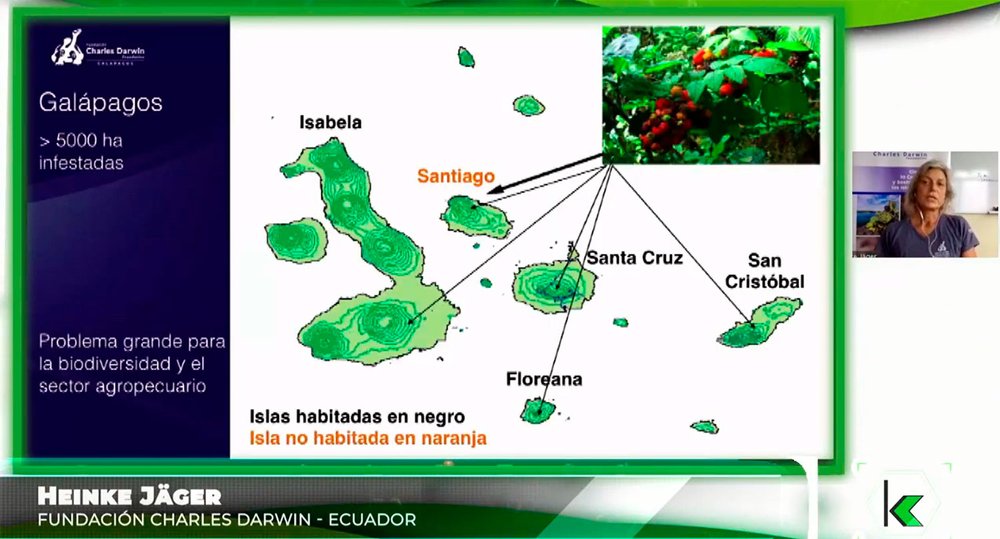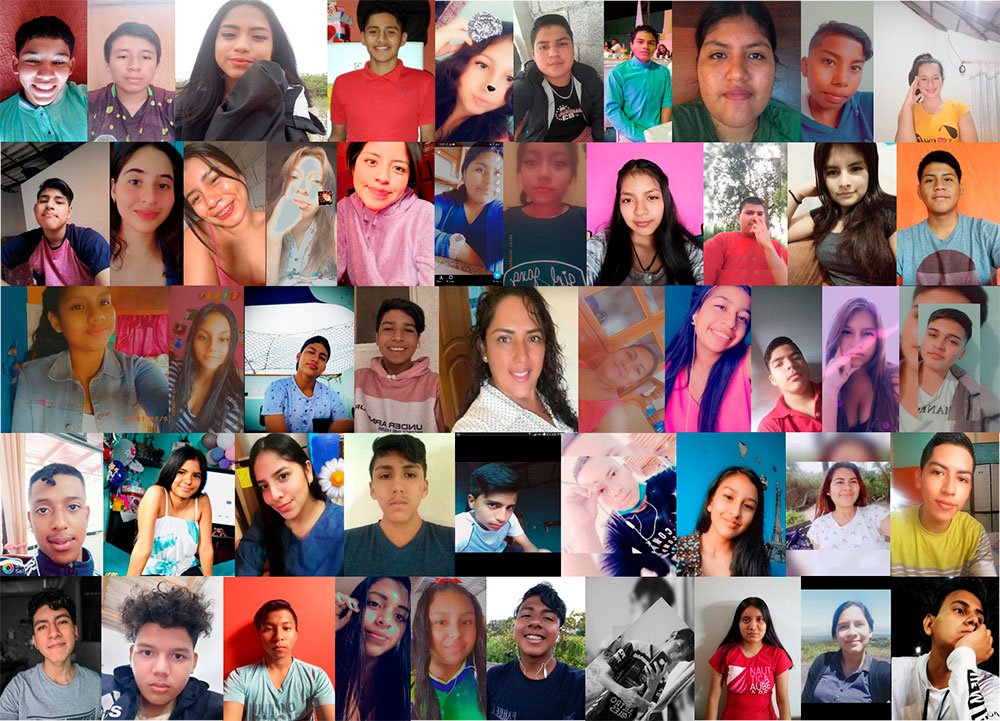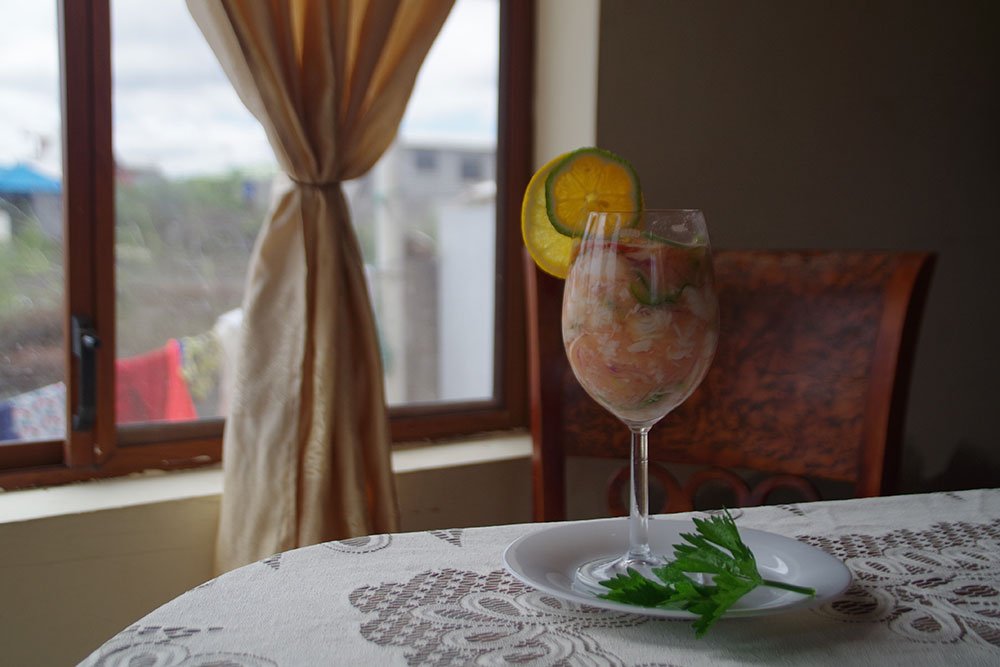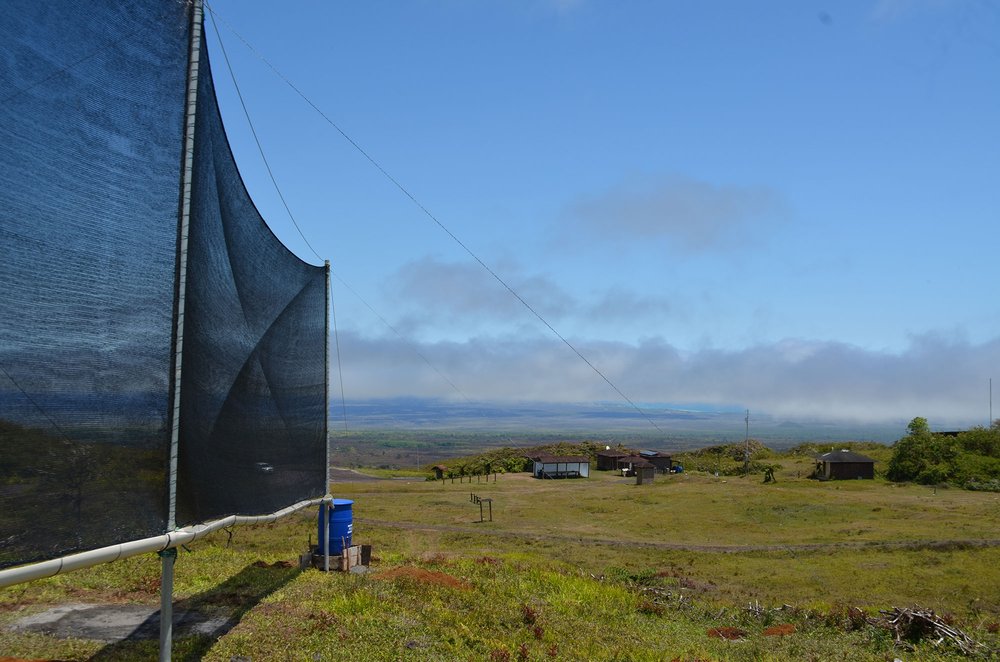
Author: Ernesto Bustamante
At the end of 2019, the team at Charles Darwin Foundation (CDF) on Isabela had a clear plan about the main education, sustainability and community outreach activities to be executed in 2020. However, March arrived, and all of our plans had to be postponed until further notice. It was not until June that the possibility of these activities was re-visited without a clear picture. We had to be flexible and adapt to this new reality, which until now had not stopped changing.
Here is a summary of the main activities that we carried out and the changes that had to be made according to the pandemic restrictions.
Program “Monthly Talks”
"Monthly Talks" facilitates visits of scientists working at the Charles Darwin Research Station in Santa Cruz to present their projects and results to local institutions and members of the Isabela community. Before the pandemic in 2020, we had executed three talks on fisheries, seabirds, and the impact of vehicles on small terrestrial birds projects.
Due to the health crisis, we had to resume the talks through virtual means. As of October, we held three talks related to sea turtles and invasive terrestrial species. Now in 2021 we will continue with this format to provide up-to-date information about our projects in the Galapagos.
“It is of the utmost importance to continue with the scientific talks of the CDF. Although the format was changed by having the talks virtually, this still allows us to continue to know its advances and results to take action and transmit the information," Mr. Mabel González, Specialist in Environmental Education and Social Participation of the Isabela Technical Unit of the DPNG.

Sustainable Community Project III (SCIII)
Since 2018 "Sustainable Community" has been implemented on Isabela as an environmental education initiative as part of the Student Participation Program of the Stella Maris School. The project consists of the execution of five practical modules related to the environment: Sustainable agriculture, Science, Urban cleaning, Theatre and Sports, the latter includes yoga, surfing and paddle boarding. Due to the pandemic, in 2020 we had to adapt the project to a virtual format.
Due to the limitations of internet connection on Isabela, it was decided to use "WhatsApp" to be able to have a fluid communication between the 44 participants. A total of 38 classes related to environmental issues, sustainable development, science and conservation were implemented were executed during 7 months.
"I learned to make decisions considering economic, social and environmental variables to prevent negative consequences to our environment " Allison Pauta, participant SCIII.

Advances in the Recipe Book “Nuestras Raíces" (“Our Roots”)
The recipe book "Nuestras Raíces" came to fruition with the idea of recognizing the culture of the island and promoting sustainable agriculture in Isabela. For this, in 2019, participants of the "Sustainable Community II" project had to write typical dishes of their families. Each dish had to be accompanied with a small text of the history, explaining how it relates to their families and the Galapagos.
During 2020 we had to interview the selected candidates by phone and in July we were able to make visits to photograph their dishes and their preparation. Currently the recipe book is in its final stage of review and design, we hope to be able to officially launch it during the first half of 2021.
"Through food customs we are mindful of our origin, it is important to teach our children to keep history alive over time," Eng. Gabriela Rivadeneira, author of one of the recipes.

Harvesting water project
"Harvesting Water" aims to increase the amount of water collected to help sustain livestock and agriculture on Isabela. This helps increase healthy food production and reduce food dependence with Santa Cruz and mainland Ecuador.
The project involves installing three 40 m2 fog-catchers in the highlands of the island. The state of emergency delayed the sampling of mist water collection and subsequent site selection. In addition, due to the economic consequences of the pandemic, they beneficiaries requested more time to gather their counterparts.
At the end of the year, two fog-catchers were installed. The first one was installed in the control shed of the Directorate of the Galapagos National Park at the entrance of the Sierra Negra volcano. The second system was installed in Mr. Juan Tupiza's livestock farm in the “Los Mellizos” sector.
The results have been very satisfactory, surpassing an average of 200 litres per day. We expect the third fog-catcher to be installed during the first quarter of 2021.
"Fog-catchers are a very important tool to promote production in Isabela. These systems open the doors for us to continue working on obtaining and managing the water that is a major part of the agricultural production of our canton," Eng. Romni Rodríguez, Agricultural Technician, Ministry of Agriculture in Isabela.

By 2021, in addition to completing our pendent activities of 2020, we will support the fisheries team in sustainability and gender studies in Isabela. In addition, we hope that face-to-face educational activities can be resumed to implement "Sustainable Community IV" among other educational initiatives.
Otherwise, we will continue our activities virtually. We begin this new year with a lot of positive energy, eager for our presence in Isabela to strengthen and contribute to the sustainable development and conservation of the magnificent, enchanted islands.




